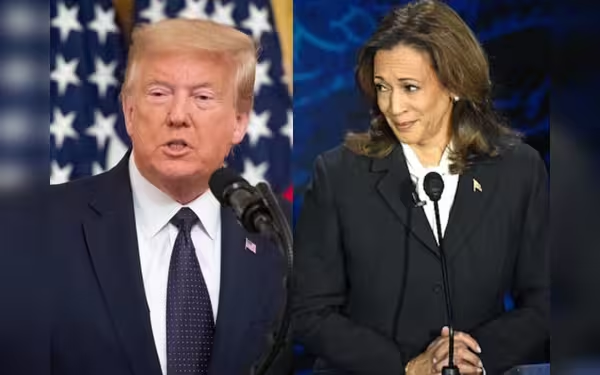Saturday, November 16, 2024 03:20 PM
Trump Declines Second Debate Invitation as Voting Commences
- Trump refuses second debate, citing early voting.
- Harris invites Trump for October 23 debate.
- Debate participation raises questions about Trump's strategy.
 Image Credits: tribune.com.pk
Image Credits: tribune.com.pkTrump declines a second debate invitation, citing early voting, raising questions about his campaign strategy.
In the world of American politics, debates play a crucial role in shaping public opinion and influencing voter decisions. As the 2024 presidential election approaches, the anticipation for debates between candidates is at an all-time high. However, recent developments have stirred the pot, particularly concerning former President Donald Trump. Trump has made headlines by refusing to participate in a second presidential debate, citing that voting has already begun.
Jen O'Malley Dillon, who serves as the campaign chair for Vice President Kamala Harris, expressed her disappointment regarding Trump's decision. She stated, "Donald Trump should have no problem agreeing to this debate," highlighting the former president's earlier enthusiasm for a debate format he praised during a June event with CNN. This statement underscores the expectation that candidates should engage in debates, especially when they have previously shown interest.
In a post on X, Harris herself extended an invitation to Trump, saying, "I will gladly accept a second presidential debate on October 23." This invitation reflects the eagerness of the Harris campaign to engage in direct dialogue with Trump, aiming to clarify their positions and address the concerns of voters. The refusal from Trump raises questions about his campaign strategy and whether he believes that participating in debates is beneficial at this stage.
The refusal to debate could be seen as a tactical move by Trump, as he may feel confident in his current standing with voters. However, it also opens the door for criticism, as many believe that debates are essential for transparency and accountability in the political process. Voters often rely on these debates to gauge the candidates' policies, personalities, and readiness for office.
As the election season heats up, the dynamics between candidates will continue to evolve. Trump's decision not to participate in the debate may have implications for his campaign, as voters may perceive it as a lack of willingness to engage with opposing views. Ultimately, the choice to debate or not is a significant one, and it will be interesting to see how this decision impacts the electoral landscape as we move closer to the election.













